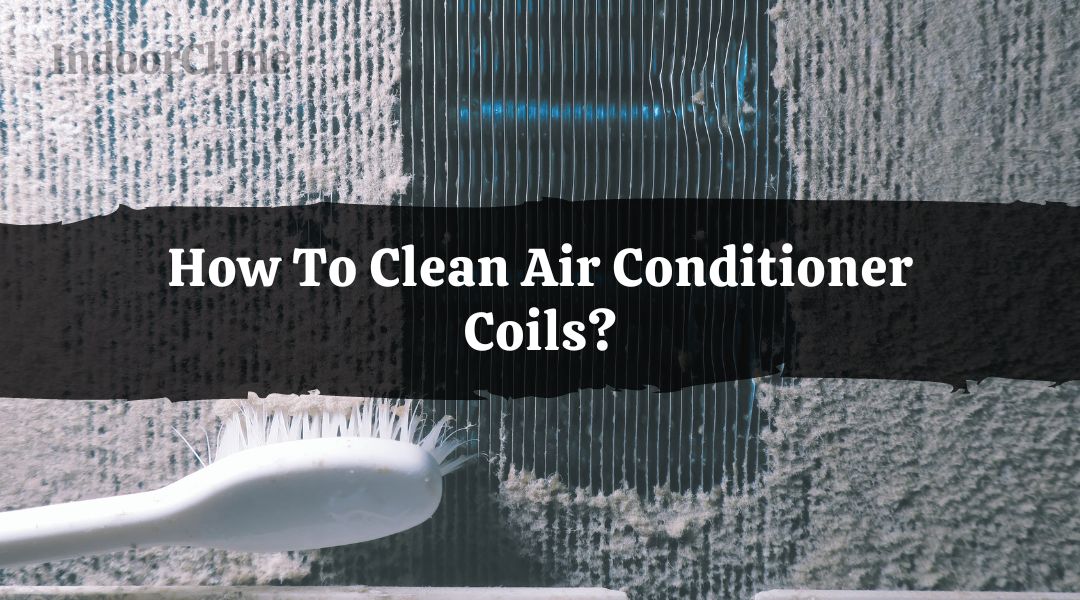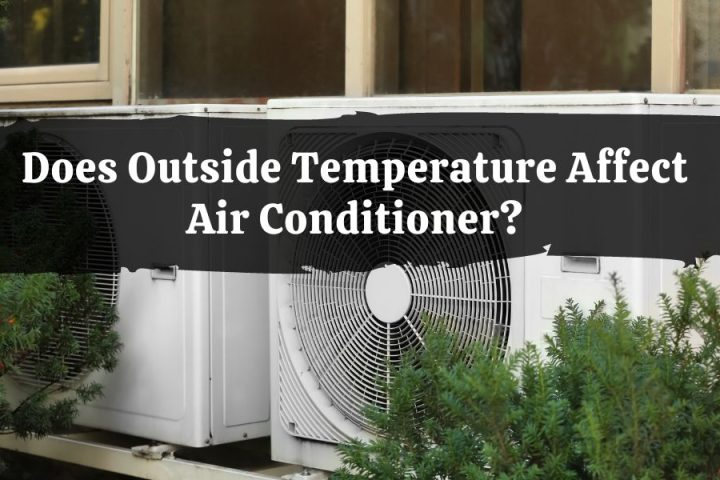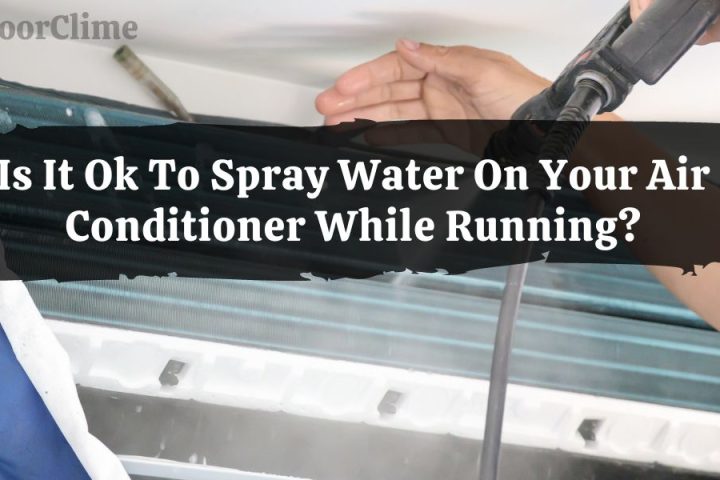An air conditioner gives us a cool, refreshing, and comfortable home, especially on a hot summer day.
Therefore, we must keep our air conditioner coils running at their best to serve their purpose better.
However, cleaning our air conditioning coils may feel quite a bit of a hassle. I, for one, feel like I’m going on a mission every time I do some cleaning.
If you think the same, then you are in luck. I took it upon myself to outline this article, where I will share some steps to keep your AC coils clean.
Some steps to clean your AC coils include using a brush, a mild detergent, and water. You may also need to use compressed air and commercial coil cleaners.
Read more on how to do this exactly and learn about the factors contributing to making your AC coils dirty and why you should prevent this.
How Do AC Coils Get Dirty?
AC coils get dirty during the process of cooling the refrigerant. First, the air is absorbed into the cooling unit from outside, building up in the coils. The larger the build-up, the harder it is for the cooling system to perform correctly.
Whenever this happens, I notice a spike in my electric bill. As the cooling capacity of the AC coils decreases, the AC system will need more energy to match the demand for cool air.
I also noticed that once the condenser is surrounded by dirt and dust, it will not convert the hot refrigerant gasses into liquid form.
It will cause the system to reduce the production of cold air even though it is still running perfectly. If this continues, the compressor might overheat, and the air conditioner will break down.
Why Is It Necessary to Clean AC Coils?

We must clean our AC coils regularly because dirt, dust, pollen, and other small debris will build up on the coil surface sooner or later.
Failing to address this build-up over time will reduce the ability of our AC system to transfer heat inside and outside of the house. Thus, reducing its ability to provide indoor summer cooling.
Of course, this will result in a less comfortable environment. And we all know that people also lose their cool when things get hot.
And much worse, the utility bills rise. It might even lead to additional expenses as you would have to hire someone to look at the AC system and do the necessary repairs.
Problems Caused by Dirty AC Coils
When our AC coils get dirty, it may result to:
- Increased operating temperatures
- Reduced system longevity
- Reduced comfort and cooling capacity
- Decreased efficiency
- Increased costs/expenses
- System wears out
- System repairs or replacement
We must have our AC coils cleaned as soon as we notice that our AC starts losing its cooling efficiency.
Types of Coils in Air Conditioners
In typical homes, it is common to find the evaporator coil (often called the cooling coil). This coil is located on the air intake side of the fan coil.
Its purpose is to remove the heat inside the house so that the blower fan can convert it into cool and refreshing air.
Some may have the condenser coil instead. This coil is found in the outdoor unit. It releases the heat from inside the home to the outside environment.
Most evaporator and condenser coils use copper tubing, which runs through a series of aluminum strips known as fins.
How to Clean AC Evaporator Coils
There are various ways of cleaning our AC evaporator coils. We can use compressed air, a brush, mild detergent, and water.
Below is an overview of each cleaning method. Take note that the descriptions below are focused on cleaning evaporator coils.
Using Compressed Air
We can easily remove light dirt build-up by applying compressed air to blow them out of the evaporator coil. I usually use compressed air to remove some stubborn pieces from the coil.
When using compressed air, you can place the air nose closer to the bottom side of the debris.
You can direct high-pressure air at a 90-degree angle or directly through the fins. This process will remove the build-up without forcing the debris further into the fins.
Wear eye protection when doing this process to prevent dirt, dust, and small debris from entering your eyes. Use a store-bought vacuum cleaner to help you with the process if necessary.
Using a Brush
I find cleaning the AC coil using a brush is one of the easiest ways. However, you can only do this when working with a minor or small accumulation of dirt in the evaporator coils.
Just make sure to avoid using cable brushes or those with stiff bristles because this may cause harm to the fins.
Use Coil Cleaner
You can use commercial coil cleaning sprays when cleaning as well. These cleaners are specially made to remove dirt from your AC coils.
Get Evaporator Coil Cleaner From Amazon.
Some require rinsing with water, and those self-cleaning without water are needed.
Using Mild Detergent And Water
You can use warm water and mild detergent to clean your AC coils. I usually mix hot water and a gentle cleanser into a grip sprayer, spray bottle, or garden sprayer.
Then, I apply it onto the evaporator coils, let it soak in, and wipe off the dirt with a soft cloth or brush.
How Often Should I Clean AC Coils?
There is no “specific time” to clean our AC coils. It just boils down to the current status of the coils. I usually do the cleaning when they are already dirty.
I check every few months and clean as necessary. If the dirt is not too much, I do light cleaning using a brush.
I only do the deep cleaning when there is considerable dirt and dust build-up. I use compressed air or mild detergent and water when deep cleaning.
However, you can start to clean your AC coils once you notice that your AC system is no longer as cool as before or if the cooling time takes longer than expected.
It means there is already a build-up of dirt inside, and immediate cleaning is needed.
Related Questions
What can I use to clean my AC coils?
You can use compressed air, a brush, an industrial cleaner, or mild soap and water to clean your AC coils.
Usually, compressed air and brush are used when removing a little dirt, dust, and debris, while an industrial cleaner and mild soap and water are used when the dirt is built into your AC coils.
However, be careful when using an industrial cleaner or a combination of mild soap and water. Ensure not to put too much to ensure your AC system remains safe and intact.
Also, remember to use protective eyewear when cleaning your AC coils. It ensures that dirt, dust, pollens, and other small debris will not enter your eyes.
Is it okay to spray water on your air conditioner?
Yes, it is okay to spray water on your air conditioner. However, you should know exactly where to spray and how much water you should put on it.
As I mentioned, you can use mild soap and water to clean your AC coils. But you must use a garden sprayer, grip sprayer, or spray bottle.
It is so you can control the amount of water entering your AC.
Also, this should be partnered with a mild detergent or cleaner to ensure the efficacy of the cleaning process.
Using water alone might not remove some dirt and dust build-up, especially if the dirt and dust have been there for an extended period.
How do I know if my AC coil is dirty?
You would know that your AC coil is dirty when it starts losing its cooling capacity or when the air conditioning starts running longer.
Once you notice these changes, it is time to check your air conditioner and clean it immediately.
How much does it cost to have AC coils cleaned?
Cleaning your AC coils can cost between $100 to $400, depending on the cleaning needed and the company you will hire to perform the service.
Does cleaning AC coils help?
Yes, cleaning the AC coils helps your air conditioning unit produce cooler air and lower utility bills.
However, please note that proactive maintenance will help you save lots of money but will also help keep your air conditioner running longer and keep everyone safe from inhaling dirt and dust.





